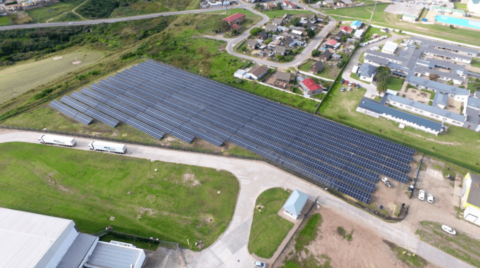Sunday Times Franchising
A Bright Future
Eskom’s inconsistency in supplying the necessary capacity for the country to realise its social and economic ideals has opened up the South African energy market. Advances in technology and infrastructure have seen renewable energy being punted as a sustainable option for market entrants looking to break the state-owned power company’s monopoly.
The renewable energy space has long passed its infancy stages, but adoption still lags somewhat. Nevertheless, the green sector provides ample opportunities for aspiring entrepreneurs.
The South African Photovoltaic Industry Association (SAPVIA) has been instrumental in regulating the sector, creating operational benchmarks that demand adherence by new and already trading renewable energy companies. The organisation has assisted and credited some of the major players in this industry.
Mark Willoughby, MD of One Energy Group, is excited about the commercial opportunities in green energy, but remains sceptical about what this means for the consumer, saying the industry is not immune to bogus suppliers. “To be avoided at all costs are the myriad ‘hit-and-run’ backyard importers who on the face of it seem to offer cheaper products. End-users purchase these products at their peril,” he says.
“There are several reliable suppliers who import products to sell on a wholesale basis directly to installers,” continues Willoughby. “When evaluating a supplier, assess the quality of their products. Check the pricing and track record in honouring warranty claims. Familiarise yourself with their after-sales support system.”
Green shoots
One Energy Group has a structured franchising model that guides entrepreneurs through the various stages of setting up a renewable energy franchise. Before approving a franchising request, Willoughby looks for technical knowledge. He believes it’s important for franchisees to understand the specifications and the dynamics of the solutions on offer.
He also says franchisees stand a better chance of being approved if they can showcase their selling skills in a way that translates the technical features of solutions on offer into answers to the customers’ most immediate questions. “The objective is for a franchisee to become a fully fledged renewable energy specialist who can provide a client with a complete blueprint to take them gradually yet substantially off the grid by making successive investments in recommended and compatible technology over time.”
Driving renewable energy adoption
It is compulsory for entrepreneurs in the renewable energy space to possess a particular set of technical and trading skills. The South African Renewable Energy Business Incubator (SAREBI) is dedicated to mentoring energy entrepreneurs to comply fully with the industry’s demands.
Sarebi general manager Helmut Hertzog says that many entrepreneurs enter this sector with the misconception that an understanding of business is all they need. In most cases, they are wrong – the renewable energy space is a highly technical and technological one that requires a broader understanding of the renewable energy value chain to achieve success.
“Entrepreneurs need to be decisive about the role they are looking to take up, be it manufacturing, assembly or installations,” says Hertzog. “They also need clarity on the markets they are targeting. Working with a franchise helps with marketing and market entry. It is not easy to do it alone. This is a highly competitive industry.”
One of the obstacles facing renewable energy franchisees is that the end-users often don’t understand energy, adds Hertzog. Customers don’t buy energy solutions because they preserve the planet; they buy solutions that guarantee them lesser costs over the long-term. It’s up to franchise owners to educate them.





